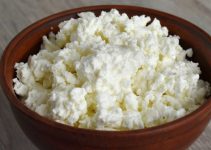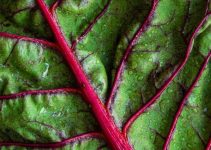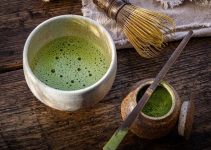Oats are known to be one of the most beneficial foods.
It provides vitamins, minerals, antioxidants, and fiber while being gluten-free.
In this article, you will find the top health benefits of oats that have been scientifically proven.
What Are Oats and Oatmeal?

Oats are whole-grain food that is readily available on the market.
Although oat groats are the most intact and whole, they take a long time to cook. For this reason, many people prefer rolled or rolled oats.
Instant oatmeal is the most processed of all the varieties, but it takes the least time to cook.
According to Wikipedia, Oatmeal refers to a preparation of oats that have been dehusked, steamed, and flattened, or else a coarse flour made of hulled oat grains that have either been milled or steel-cut.
Oatmeal Recipe

Ingredients
- Flaked oats
- Almond milk
- A little honey to taste
- A serving of fruits of your choice
- a tablespoon of chia seeds (optional)
Preparation
Step 1: Add the oatmeal to the glass until half, then add a tablespoon of chia seeds if you prefer.
Step 2: Mix the oats and chia with a spoon, then pour almond milk until it reaches the top of the oats, that is, 2 centimeters above the middle of the glass.
Step 3: Finally, add the fruit portion of your choice.
Leave the glass in the fridge overnight; in the morning, add a little more milk if you wish, and enjoy this delicious recipe.
Health Benefits of Oats and Oatmeal

1. Oats Are Rich in Nutrients
The nutritional composition of oats is complete.
It is a rich source of fiber (including the powerful fiber beta-glucan) and carbohydrates.
They also have more protein and fat than the rest of the grains.
Half a cup of dry oatmeal (78 grams) contains:
- Zinc: 20% of the RDI
- Manganese: 191% of the RDI
- Magnesium: 34% of the RDI
- Vitamin B1 (thiamin): 39% of the RDI
- Iron: 20% of the RDI
- Phosphorus: 41% of the RDI
- Folate: 11% of the RDI
- Copper: 24% of the RDI
- Vitamin B5 (pantothenic acid): 10% of the RDI
- Calcium, potassium, vitamin B6 (pyridoxine) and vitamin B3 (niacin)
- Carbs: 51 grams
- Protein: 13 grams
- Fat: 5 grams
- Fiber: 8 grams
- Calories: 303
2. Whole Oats Are Rich in Antioxidants
Whole oat grains are rich in antioxidants and polyphenols.
In addition, oats have a group of antioxidants that are difficult to find in other foods called avenanthramides. They help lower blood pressure levels by producing nitric oxide.
In this way, it dilates the blood vessels and promotes the proper functioning of the circulatory system.
In addition, these antioxidants are used to treat inflammation and itching.
Finally, oats contain another antioxidant called ferulic acid.
3. Oats Contain a Powerful Soluble Fiber Called Beta-glucan
Oats are a rich source of a soluble fiber called beta-glucan.
It has several benefits:
- Reducing blood cholesterol levels
- Increasing the feeling of satiety
- Reducing blood sugar levels
- Increasing the levels of good bacteria in the digestive tract.
4. Can Lower Cholesterol Levels
According to various studies, the beta-glucan fiber present in oats is beneficial in reducing cholesterol levels.
It is noteworthy that when bad cholesterol (LDL) reacts with free radicals, it causes oxidation that can lead to heart disease.
According to a study, oats have antioxidants that work together with vitamin C to combat LDL oxidation.
This is one of the health benefits of oats that people like the most.
5. Oats Can Improve Blood Sugar Control
Several studies have shown that oats are used to lower blood sugar levels, mainly in type 2 diabetes and overweight people.
Oatmeal has even been shown to improve insulin sensitivity.
According to research, oats cause these effects in the body because beta-glucan forms a gel in the digestive tract that works by emptying the stomach and absorbing blood sugar.
6. Oatmeal May Help You Lose Weight
Oatmeal is very filling because beta-glucan slows down the time your stomach needs to empty of food, which prolongs the effect of satiety.
Furthermore, it is understood that beta-glucan also helps produce a hormone known as “satiety hormone.” It is beneficial because it serves to reduce calorie consumption and promotes weight loss.
7. Oats May Help With Skin Care
Several skin care treatments use finely ground oatmeal known as “colloidal oatmeal.”
It was approved in 2006 by the FDA as a substance that protects the skin. However, it is known that oatmeal has been used to treat skin problems for a long time.
On the other hand, a study showed that oat-based skin products work to improve the symptoms of eczema.
8. May Help Decrease The Risk of Childhood Asthma
Asthma is known to be one of the most common chronic diseases in children.
According to some research, early consumption of solid foods can increase the risk of developing asthma in childhood.
However, this does not apply to all solid foods since oats could be beneficial in preventing these types of diseases.
9. Oats May Help Relieve Constipation
You can also use oatmeal to treat digestive system problems such as constipation.
According to a study carried out in older people, the fiber that covers the oatmeal reduces constipation.
In addition, another study carried out on 30 older people showed that the consumption of soups or desserts with oat bran notably improved the functioning of their digestive system.
How To Incorporate Oats Into Your Diet
The best thing about oatmeal is that you can consume it in several ways.
You can consume it in puddings, granola, bread, or muesli, among others.
Although oats are naturally gluten-free, what happens is that, in the harvesting process, they become contaminated with other grains. For that reason, if you have celiac disease, check that the oatmeal foods you choose are certified gluten-free.





